If you want to disable or turn off Hybrid Sleep when your Windows 11/10 computer is on battery or plugged into a power source, this tutorial will help you. Apart from the Control Panel, the Registry Editor and Local Group Policy Editor can help you do the same.
Hybrid Sleep is mainly for desktop computers, but it is also available on Windows laptops. The combination of Hibernate and Sleep saves all open programs in memory and hard disk so that users can get them back in case of a power failure during a low-power state. If your computer supports Hybrid Sleep, but you do not want to use this functionality, here is how you can disable it using the Registry Editor and Local Group Policy Editor.
Turn off Hybrid Sleep when PC is on battery or plugged in
To turn off Hybrid Sleep when your Windows 11/10 PC is on battery or plugged in, using the Group Policy Editor, follow these steps-
- Search for gpedit.msc in the Taskbar search box.
- Click on the specific result.
- Navigate to Sleep Settings in Computer Configuration.
- Double-click on Turn off hybrid sleep (plugged in).
- Select the Enabled option.
- Click on Apply and OK.
- Double-click on Turn off hybrid sleep (on battery).
- Select the Enabled option.
- Click on Apply and OK.
Search for the gpedit.msc in the Taskbar search box and click on the corresponding search result. It appears as an Edit group policy in the search result. After opening the Local Group Policy Editor on your computer, navigate to the following path-
Computer Configuration > Administrative Templates > System > Power Management > Sleep Settings
You can see two settings on the right-hand side – Turn off hybrid sleep (plugged in) and Turn off hybrid sleep (on battery).
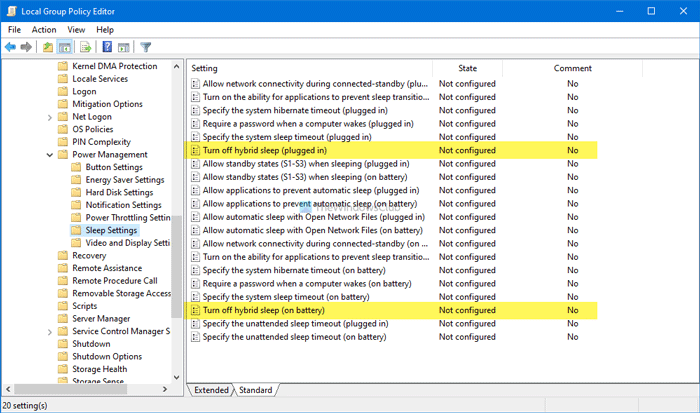
If you want to disable this functionality when it is connected to a power source, double-click on the first setting.
Similarly, if you want to disable it when it is on battery, double-click on the second setting. Now, select the Enabled option, and click on Apply and OK, respectively.
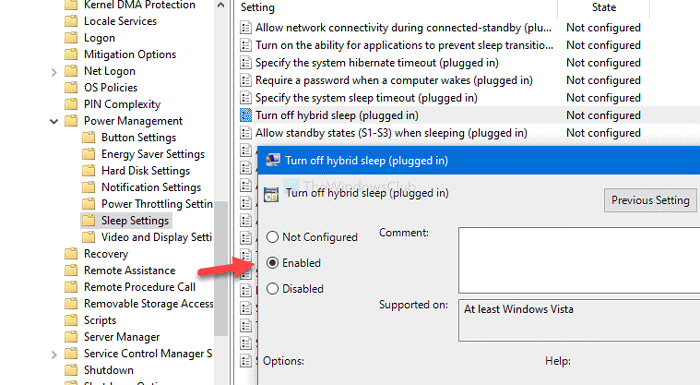
It is possible to make the same change with Registry Editor as well. It is recommended to create a System Restore point first to be on the safe side.
Disable Hybrid Sleep when PC is on battery or plugged in using Registry
To disable Hybrid Sleep when the PC is on battery or plugged in, follow these steps-
- Press Win+R.
- Type regedit and hit the Enter button.
- Click on the Yes button.
- Navigate to PowerSettings in HKLM.
- Right-click on PowerSettings > New > Key.
- Name it as 94ac6d29-73ce-41a6-809f-6363ba21b47e.
- Right-click on this key > New > DWORD (32-bit) Value.
- Name it as ACSettingIndex or DCSettingIndex.
- Keep the Value data as 0 to turn off Hybrid Sleep.
If you want to learn more about these steps, read on.
At first, press Win+R to open the Run prompt, type regedit, and hit the Enter button. If the UAC prompt appears, click on the Yes button to open the Registry Editor on your computer. After that, navigate to the following path-
HKEY_LOCAL_MACHINE\SOFTWARE\Policies\Microsoft\Power\PowerSettings
If you cannot find Power and PowerSettings, do the following.
Right-click on Microsoft > New > Key, and name it as Power. Then, right-click on Power > New > Key and call it PowerSettings. Now, you are good to go with the next step.
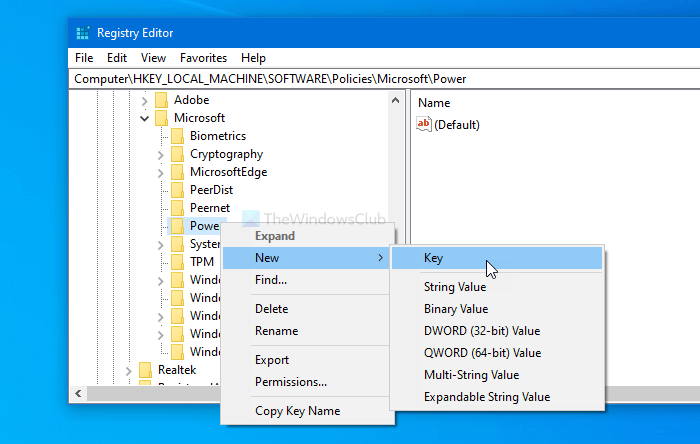
Right-click on PowerSettings > New > Key and name it as 94ac6d29-73ce-41a6-809f-6363ba21b47e.
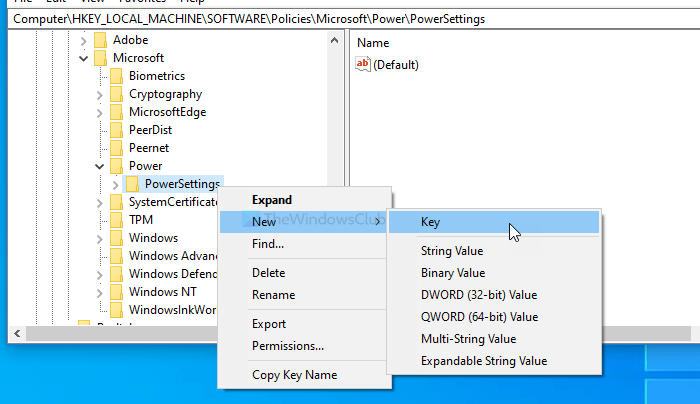
Following that, you will have to create two DWORD (32-bit) Values. For that, right-click on 94ac6d29-73ce-41a6-809f-6363ba21b47e > New > DWORD (32-bit) Value and name them as ACSettingIndex or DCSettingIndex.
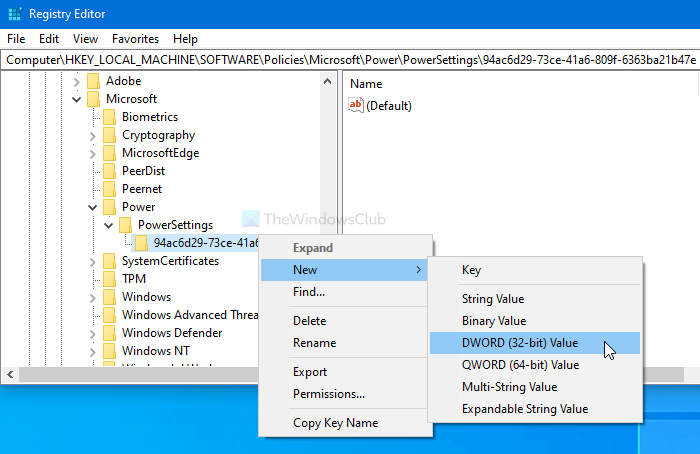
ACSettingIndex represents the Turn off hybrid sleep (plugged in) settings, whereas DCSettingIndex defines Turn off hybrid sleep (on battery) setting. After creating those DWORD (32-bit) Values, do not change the Value data and keep it 0.
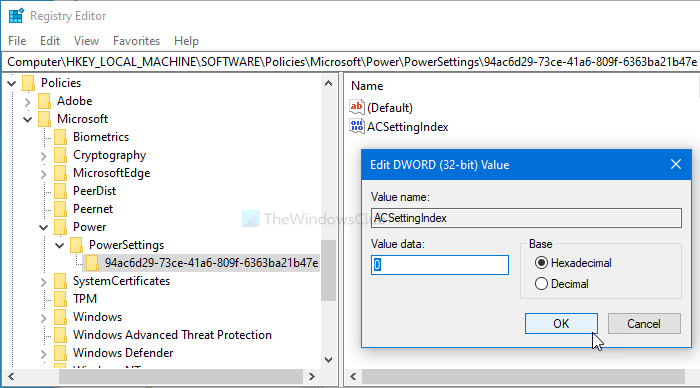
Read: Hybrid Sleep Missing in Windows
That’s all!
I hope this guide helps.
Leave a Reply